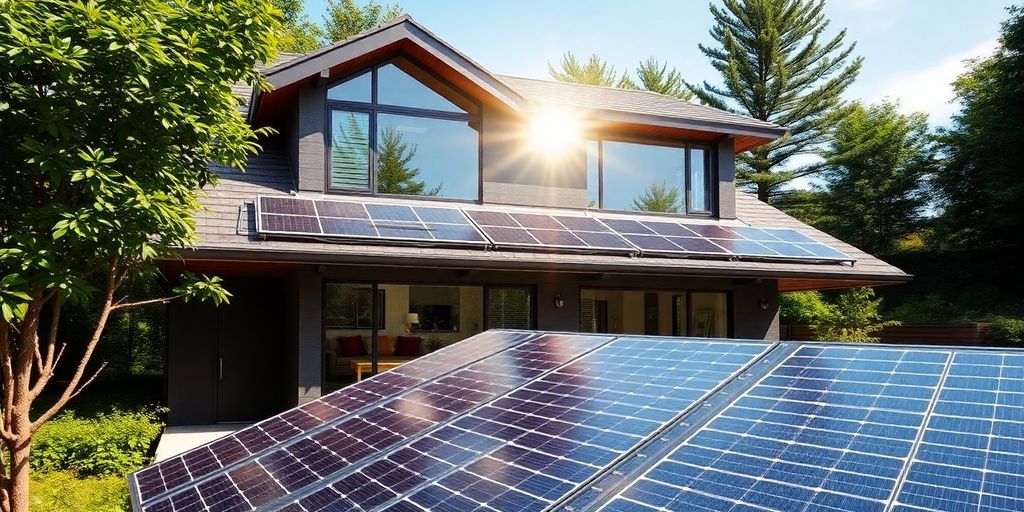The global conversation around sustainability has shifted dramatically in recent years. As the effects of climate change become more visible, homeowners are increasingly looking for practical, long-term ways to reduce their environmental impact. Among the most promising solutions is solar energy — a clean, renewable source that can be harnessed right from one’s rooftop. Choosing to buy solar panel for home use is no longer an experimental idea but a well-established strategy for achieving energy independence and long-term sustainability.
The Rising Popularity of Solar Energy
Solar energy adoption has grown rapidly across the world, driven by advances in technology, improved efficiency, and the desire for greener living. Households that once relied solely on traditional electricity sources are now supplementing or even replacing them with solar systems. The appeal lies in the ability to generate power directly from sunlight — a resource that’s abundant, free, and endlessly renewable.
Modern solar panels have evolved significantly over the past decade. Today’s systems are more compact, durable, and capable of generating higher output even in less sunny conditions. This progress has made solar energy more accessible to residential users, helping homeowners of all kinds — from suburban families to city dwellers — take advantage of clean power generation.
The Smart Export Guarantee: Making Solar More Rewarding
One of the key developments that has boosted interest in solar energy is the Smart Export Guarantee (SEG). Introduced in the UK, SEG allows homeowners who produce more electricity than they use to export the surplus back to the grid. Energy suppliers then compensate these households for their contributions, effectively turning everyday homeowners into small-scale energy producers.
This policy doesn’t just make solar energy more practical — it adds a layer of economic benefit to environmental responsibility. For many people, the ability to earn from excess energy helps justify the decision to transition toward renewable power, reinforcing the long-term value of investing in solar.
Understanding the Value Beyond Residential Panel Cost
When researching solar solutions, it’s natural to focus first on the residential panel cost. While upfront prices can vary depending on factors like system size, technology type, and installation complexity, it’s important to recognize that cost alone doesn’t define the value of solar energy.
Unlike many household purchases, solar panels are a long-term asset — one that continuously generates value over decades. High-quality panels require minimal maintenance, perform reliably year after year, and steadily offset the household’s dependence on the traditional power grid. The real value of solar lies in its ability to produce clean electricity on-site, reduce reliance on fossil fuels, and provide a greater sense of energy autonomy.
In addition, advances in solar battery storage have made it possible to store unused electricity for later use, such as during the night or cloudy days. This further enhances the usefulness of home solar systems, allowing households to rely on renewable energy around the clock.
How to Make the Most of Home Solar Energy
Making the shift to solar energy starts with understanding a home’s unique characteristics. Roof orientation, angle, shading, and available space all play crucial roles in determining how effective a solar installation can be. Consulting with a qualified solar energy professional helps identify the best configuration to maximize efficiency and long-term output.
Another key consideration is future energy needs. Homeowners planning to purchase electric vehicles or expand their living spaces may benefit from slightly larger solar systems to accommodate growing energy demand. With careful planning, solar power can provide a scalable, adaptable solution that evolves alongside a household’s lifestyle.
Environmental Impact and Broader Benefits
Beyond the immediate advantages of self-generated power, solar panels contribute meaningfully to environmental sustainability. Each kilowatt-hour of electricity generated from sunlight reduces the need for energy produced by fossil fuels, which are responsible for significant greenhouse gas emissions. Over time, this collective shift toward renewable energy sources can have a powerful, positive effect on both local and global ecosystems.
Additionally, adopting solar energy promotes community resilience. Neighborhoods with distributed energy systems — where many homes generate their own power — are less vulnerable to large-scale outages and grid failures. This decentralized approach creates a more stable and reliable energy network for everyone.
Looking Ahead: A Bright Future for Solar Homes
As technology continues to advance, solar power is set to become even more efficient, affordable, and widespread. Innovations in photovoltaic materials, energy storage, and smart home integration will only enhance the convenience and effectiveness of solar systems.
For homeowners, the decision to transition to solar is about more than just saving on bills or embracing a new technology. It represents a commitment to cleaner living, environmental stewardship, and a more self-sufficient future. Each installation contributes to a larger movement toward renewable energy — one that benefits not only individual households but also the planet as a whole.
In the coming years, solar adoption is expected to accelerate as awareness grows and systems become increasingly adaptable. Whether in dense urban centers or remote countryside areas, the opportunity to harness the sun’s energy offers both ecological and practical rewards.

